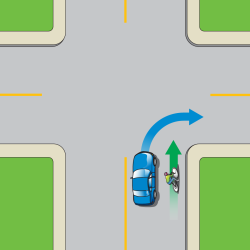Main menu
ICBC: Road to Reform
In March 2022, ICBC took a significant step forward by establishing a cross-divisional committee to enhance its subrogation policy and address equitable resolutions for claims involving vulnerable road users like people walking, rolling or cycling. Over the past year, HUB Cycling has collaborated closely with the BC Cycling Coalition and ICBC, united by a shared mission to elevate the experience for people cycling while navigating insurance claims.
Here's a snapshot of some of the positive strides:
1. Responding to the needs of people cycling, ICBC revamped its Call Center phone options in May this year. Now, reporting a claim for bike damage and injury is more seamless, offering a tailored experience. Initial contact calls are expedited for these customers, prioritizing their unique needs.
2. ICBC has invested in upskilling Claims Adjusters to better support claims from people cycling. This focused initiative emphasizes standardization and deepens their understanding of cycling equipment and varied bike values. Additionally, the roles of Recovery Specialists and Claims Adjusters have been clarified internally and for the public. This ensures transparent communication of responsibilities to customers, underlining the significance of the two distinct claim numbers for injury and bike damage. ICBC has also enhanced customer communications by introducing updated letters that now provide clear and comprehensive information.
3. We continue collaborating with ICBC and BC Cycling Coalition to develop updated training modules for ICBC Claims Adjusters. ICBC recognizes the need to prioritize the cycling community by implementing improvements to ICBC.com. Key enhancements include:
a) Language Improvements: Clear communication on what people cycling can expect in the unfortunate event of a crash involving a vehicle and bike damage.
b) Care Benefits Clarification: Detailed information on enhanced care benefits available to cyclists after a vehicle crash.
c) Scenario Illustrations: Real-life examples of crash scenarios involving bicycles. For example, a collision occurs when a vehicle driver overtakes a person cycling in order to make a right turn (Photo Credit: ICBC).

Person driving = 100% fault
Person cycling = 0% fault
You can see more examples of collisions between vehicle drivers and people walking, rolling or cycling at icbc.com
HUB Cycling will continue to work with ICBC on ongoing consultation and collaboration on expanding initiatives, including the development of new crash scenarios aligned with upcoming changes to the Motor Vehicle Act, slated for implementation early next year.
Been in a Collision?
Be prepared in case of an incident on your bike, or when encountering a dangerous situation on a bike route. Use these resources to understand what to do at the scene and when you get home.
Download this 'wallet card' (PDF), sponsored by David Hay, K.C. from your full-service firm for people cycling; Richards Buell Sutton LLP. Learn more at bikehub.ca/been-in-collision
Support HUB's Advocacy Work
If possible, consider donating to HUB Cycling and support our advocacy work in expanding the cycling network across the region. Your support enables us to make an impact on people of all ages and abilities and promote access to cycling across regional and diverse communities.
What is the Impact of Your Generous Gift?
- $2,500 will help us develop programs for communities facing social, cultural, and/or financial barriers to cycling.
- $250 helps us support infrastructure research for an advocacy project like cycle highways phase 2 analysis.
- $100 will help HUB organize online learning like our Biking for Mental Health webinar to encourage people of all ages and abilities to bike.

